Thursday's wise wordspublished at 04:38 GMT 9 December 2021
Our African proverb of the day:
Quote MessageToo much talk cannot fill a jar."
A Somali proverb sent by Mahad Ali Mohamed in Somalia
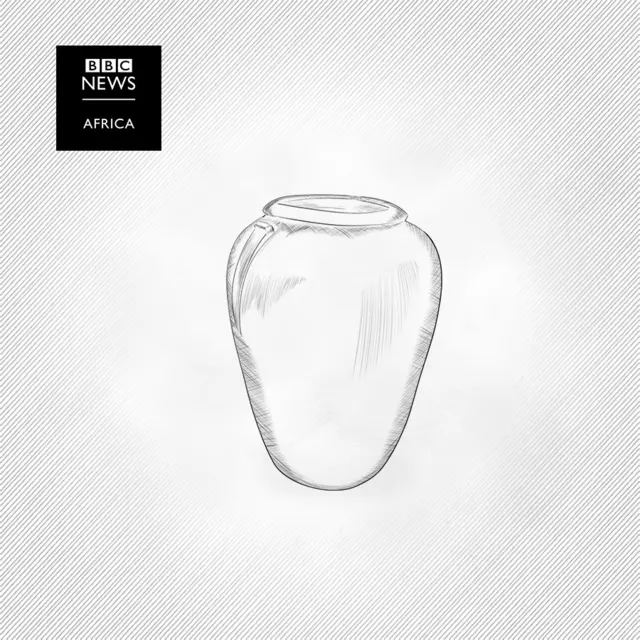
Our African proverb of the day:
Quote MessageToo much talk cannot fill a jar."
A Somali proverb sent by Mahad Ali Mohamed in Somalia

The US promotes democracy and China builds infrastructure but people in Africa want both.
Read MoreWe'll be back on Thursday morning
That's all from the BBC Africa Live team for now. We'll be back on Thursday morning Nairobi time.
Until then there will be an automated service and you can find the latest updates on the BBC News website, or listen to our podcast Africa Today.
Our African proverb of the day:
Quote MessageIf I don't reduce my hands-off it will become taller than me."
A Twi proverb sent by Mary Mantey in Ghana
Click here to send us your African proverbs.
And we leave you with this picture of a mother carrying her baby in Maputo, Mozambique by photographer Grég Escande:
Allow Instagram content?
This article contains content provided by Instagram. We ask for your permission before anything is loaded, as they may be using cookies and other technologies. You may want to read Meta’s Instagram cookie policy, external and privacy policy, external before accepting. To view this content choose ‘accept and continue’.
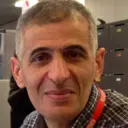 Ahmed Rouaba
Ahmed Rouaba
BBC News
 Image source, AFP
Image source, AFPThe African Men's Handball Championship is more than four decades old and takes places every two years
Algeria's national handball team will not take part in the African Men's Handball Championship to be held in Morocco from 13 to 23 January, local media report.
At an event to draw the matches in Ivory Coast on Wednesday, Algeria was not among the participating nations.
The boycott of the Algerian side was expected, after it emerged that some of the games would be hosted in the city of Layoun in the disputed territory of Western Sahara.
Morocco claims sovereignty of Western Sahara, while Algeria backs the Polisario movement fighting for independence in the former Spanish colony.
Former Marseille and Nigeria defender Taye Taiwo insists 'there is plenty in the tank' as moves to the Finnish third tier aged 36.
Read More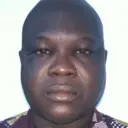 Nichola Mandil
Nichola Mandil
Juba
The UN’s peacekeeping mission in South Sudan (Unmiss) says it is prepared to contain any possibility of violence related to elections scheduled to take place in 2023.
South Sudan has never conducted elections since becoming independent 10 years ago. A vote scheduled for 2015 could not take place due to the conflict that erupted in December 2013.
Last month, President Salva Kiir announced that elections would take place at the end of the transitional period in 2023.
But last week, First Vice-President Riek Machar warned against holding elections before a unified national army is formed.
President Kiir and Mr Machar formed a unity government in February last year to end conflict between their rival forces and agreed to form a unified army of 83,000 troops, a key part of the 2018 peace agreement they are yet to fulfil.
“We want to limit the possibility of violence – before the elections, during the elections and after the elections – if the parties choose not to accept the results," Unmiss head Nicholas Haysom told reporters in the capital, Juba, on Wednesday.
"I don’t think there is a golden script for the elections. It is really a decision for South Sudanese to decide under what conditions they want to conduct the elections,” Mr Haysom continued.
In March this year, the UN Security Council determined that the situation in South Sudan continued to constitute a threat to international peace and security in the region, and extended the mandate of Unmiss until 15 March 2022.
The resolution mandated Unmiss to advance a three-year strategic vision to prevent a return to civil war, build durable peace, and support inclusive, accountable governance and free, fair and peaceful elections.
 BBC News
BBC News
Seven UN peacekeepers were killed in an explosion in Mali on Wednesday, the body's mission in the country says.
They had been travelling in a logistics convoy in central Mali when it was targeted by an Improvised Explosive Device, or IED.
Three others were seriously wounded in the blast.
They are the latest fatalities among troops serving for the UN in Mali.
On Monday a peacekeeper died two weeks after his vehicle was hit by an IED.
The company says a third dose of its vaccine could improve protection against the new variant.
Read More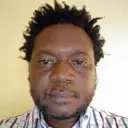 Peter Jegwa
Peter Jegwa
Lilongwe, Malawi
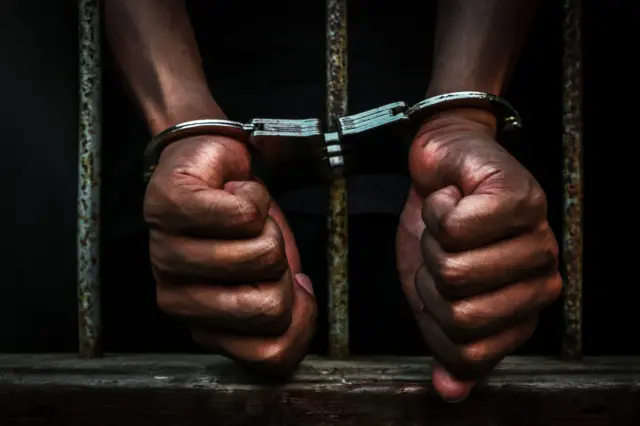 Image source, Getty Images
Image source, Getty ImagesPolice allege that the two men duped the IMF in their high-profile finance roles
Police in Malawi have arrested former Finance Minister Joseph Mwanamveka and former central bank head Dalitso Kabambe on charges of abuse of office and fraudulent accounting.
A police spokesman said the two, while serving in their respective positions, allegedly procured and masterminded the falsification of financial records with intent to help Malawi secure a loan from the International Monetary Fund.
The two deny wrongdoing, calling the arrest a political witch-hunt.
In recent days, both men have expressed an interest in running for the presidency in the main opposition Democratic Progressive Party, with a view to challenge President Lazarus Chakwera, whose term of office ends in 2025.
Police have also arrested another former cabinet minister, Ben Phiri, for alleged fraud in an unrelated case.
Mr Phiri, who was local government minister under former President Peter Mutharika, also denies any wrongdoing.
Nigeria's all-women lawyers offering free services to those unable to get bail and people facing long pre-trial detentions.
Read More Peter Mwai
Peter Mwai
BBC Reality Check
 Image source, Getty Images
Image source, Getty ImagesNigeria has a low vaccination rate
The Nigerian government has responded to a Reuters news report, external that a million coronavirus vaccines in the country expired last month, by saying they "had been withdrawn before then and will be destroyed accordingly”.
They did not specify how many jabs were now out-of-date.
Its statement went on to say it “now politely declines all vaccine donations with short shelf life or those that cannot be delivered in time".
Only around 3% of Nigeria’s population has received a full course of vaccines against Covid – a low rate compared with other countries in Africa.
The now expired doses originally arrived in Nigeria with a remaining shelf life of between four and six weeks, Reuters reported.
Nigeria received 800,000 AstraZeneca vaccines from Canada in September and 500,000 from France in October via the international Covax scheme.
These would normally be safe to keep for at least six months from the time of manufacture under suitable conditions.
It is not clear what remaining shelf-life these vaccines had when they arrived in Nigeria or whether they are part of the unused and now out-of-date stockpile.
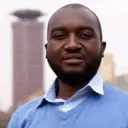 Emmanuel Igunza
Emmanuel Igunza
BBC News
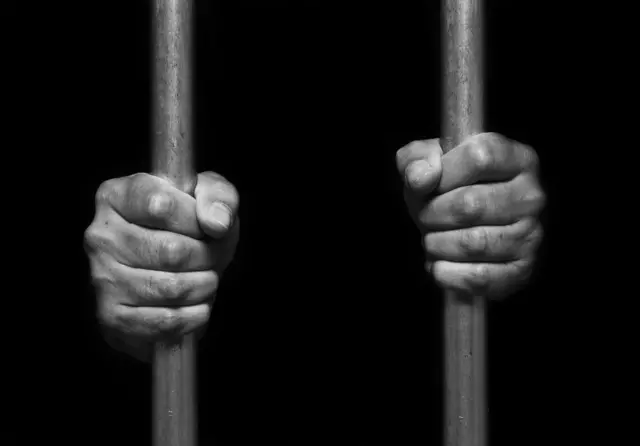 Image source, Getty Images
Image source, Getty ImagesEthiopia is under a state of emergency amidst a civil war
The Ethiopian government has denied allegations by Western powers that it has arrested thousands of people based on their Tigrayan ethnicity.
The prime minister's spokesperson, Billene Seyoum, admitted that hundreds had been arrested since the country declared a state of emergency last month, but denied that the detentions were ethnically motivated.
The government says that people arrested since the beginning of last month have been questioned and some released after investigations.
Ms Billene said the claims by the US, UK and other Western powers were part of a campaign of misinformation and undue international pressure against the government.
But in Washington, the US State Department doubled down on the accusations and asked the government to immediately stop the arrests.
Meanwhile, the UN and the Ethiopian government have traded accusations over humanitarian access to the conflict areas in the north of the country.
The government says that it has delivered food aid to two million people since it recaptured towns and cities from the Tigray People's Liberation Front (TPLF) several days ago.
But the UN insists that limited gains in access and delivery have been regressing quickly since the rebel offensive and government counter-offensive began in October.
At least four million people have been internally displaced by the year-long civil war.
Guy Bandolo
BBC News
Dozens of people suspected of being responsible for war crimes and crimes against humanity remain at large in the Central African Republic (CAR), Amnesty International said in a report on Wednesday.
The Special Criminal Court has only executed one arrest out of the 25 warrants it issued since 2018, the report revealed.
In November 2021, the Minister of Livestock, Hassan Bouba Ali, was arrested. However, he was released a few days later by the authorities.
Mr Ali, who is a former rebel leader, is suspected by the American investigative and policy group, The Sentry, of being responsible for an attack on a camp for displaced people in November 2018 in Alindao, 310 miles (500 km) east of the capital Bangui, which resulted in the death of at least 112 villagers including 19 children.
He has not commented on the accusations made against him.
In a statement published on 2 December, after an outcry about Mr Ali's release, officials said that the proceedings initiated against him for alleged war crimes and crimes against humanity have not been suspended.
The CAR’s ministry of justice affirmed “its commitment to fight against impunity".
The government has not yet commented on Amnesty's report.
Ajax and Ivory Coast striker Sebastien Haller speaks of his pride after firing his way into the Champions League history books.
Read MoreThey are charged with incitement to debauchery, gender discrimination and violence against women.
Read MoreThe office of Ethiopia's Prime Minister Abiy Ahmed says he has returned to his usual work in the capital and has left the battle front.
"I am returning to the office as I have completed the first phase [of the conflict]," he was quoted as saying.
Allow X content?
This article contains content provided by X. We ask for your permission before anything is loaded, as they may be using cookies and other technologies. You may want to read X’s cookie policy, external and privacy policy, external before accepting. To view this content choose ‘accept and continue’.
The prime minister has been at the front line in the civil war, which started in Tigray last year.
The federal troops have been fighting rebels from the northern Tigray region.
In recent weeks, federal troops have recaptured areas that were formerly under rebel control.
The rebels have however been insisting that they have strategically withdrawn from the areas.
And Mr Abiy warned that: "The struggle isn't yet finished. We have areas that haven't been freed. We should offer a long-lasting solution to make sure the enemy that has tested us doesn't become a danger to Ethiopia again."
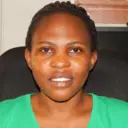 Patience Atuhaire
Patience Atuhaire
BBC News, Kampala
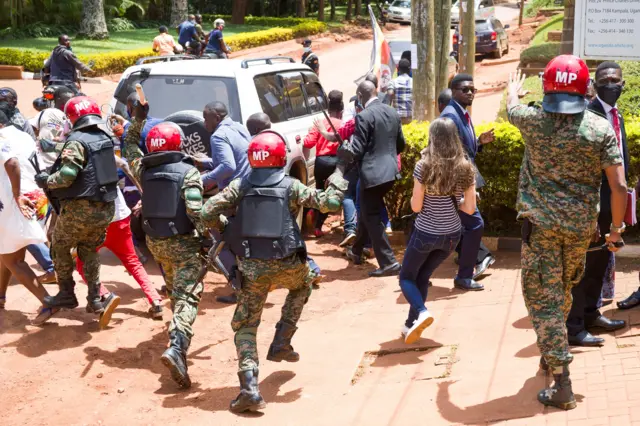 Image source, AFP
Image source, AFPThe Ugandan military have been accused of human rights abuses
The Ugandan army has protested against the financial sanctions imposed on Major General Abel Kandiho, the country’s head of military intelligence.
The Uganda People’s Defence Forces said in a statement on Tuesday that the sanctions had been imposed without due process and with total disregard of the principle of fair hearing.
It said it was disappointed that such action had been taken by a country that Uganda considers a friend, a partner and great ally.
In imposing the sanctions, the US Treasury said , externalthat Mr Kandiho and other military intelligence officers arrested, detained and physically abused people "due to their nationality, political views, or critique of the Ugandan government".
It said that those arrested were "subjected to horrific beatings and other egregious acts... including sexual abuse and electrocutions, often resulting in significant long-term injury and even death".
The sanctions come after reports that spyware made by Israeli cyber company NSO Group, was used to snoop on the phones of US embassy staff in Uganda.
In April, the US imposed visa bans on Ugandan officials it said were responsible for human rights violations linked to the January general elections.
 Emmanuel Igunza
Emmanuel Igunza
BBC News, Nairobi
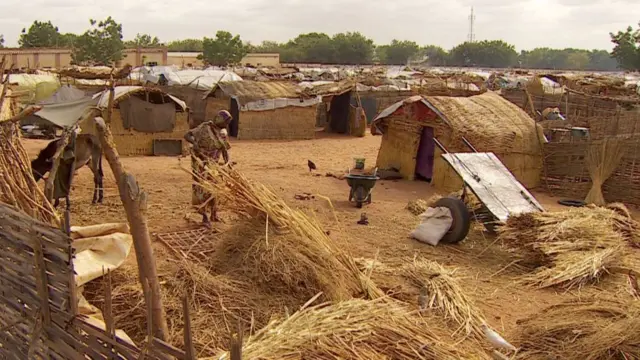
Thousands have been displaced by the fighting in Darfur
More than 100 people have been killed following days of ethnic clashes in West Darfur state in Sudan.
Fighting between Arab tribesmen and fighters from the African Masalit community backed by former rebels, have been going on for days.
The fighting in the Kreinik area has displaced thousands, including across the border into neighbouring Chad, the United Nations says.
A survivor of the clashes says armed men attacked their village west of Kreinik, and opened fire before burning down houses.
They also laid ambushes on the main road blocking people from fleeing.
Those injured were not able to get urgent medical attention.
Fresh fighting between the communities began on Sunday killing at least 55 people.
More bodies were recovered in the bushes on Tuesday, raising the death toll to more than 100. Dozens are still missing.
Last month, 43 people were killed in a different part of West Darfur.
Ethnic clashes have also been reported in the south of the restive region.
The government has deployed a joint force of paramilitary units, the army and police to West and South Darfur to try and contain the violence.
 Nichola Mandil
Nichola Mandil
BBC News, Juba
The UN has strongly condemned violence and looting in South Sudan's oil-producing Unity State in the northern part of the country.
An incident in Leer county is said to have led to the injury and death of civilians, destruction of assets and looting of humanitarian commodities.
One humanitarian aid worker from a non-governmental organisation supporting the community with nutrition services was killed during the violence.
“Attacks against civilians, looting of aid intended to support the most vulnerable is unacceptable. This behaviour must stop,” UN's acting Humanitarian Coordinator in South Sudan, Matthew Hollingworth, said in a press release.
Health and nutrition facilities in Gandor, Guat, Luol and Padeah were reportedly looted.
Mr Hollingworth says more than 3,600 children supported by these facilities will not receive timely access to nutrition services because of the violence.
He said an estimated $80,000 (£60,000) worth of supplies were looted from two facilities in Gandor and Luol, which he said would have provided three months of health and nutrition supplies to some 14,000 people in need in the area.
Since March, there has been an increase in such incidents across South Sudan - with young men attacking and killing a number of aid workers and looting assets.
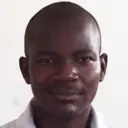 Ishaq Khalid
Ishaq Khalid
BBC News, Abuja
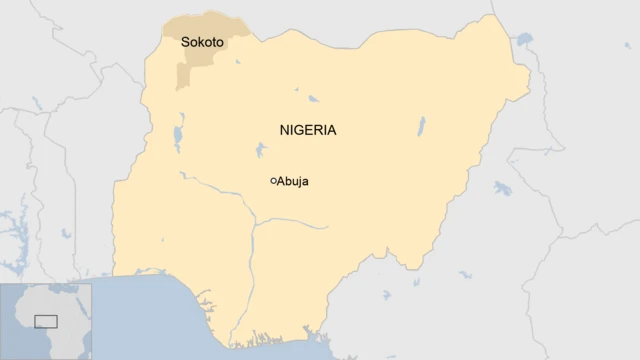
At least 21 passengers, including children, were burnt to death when their bus was ambushed by gunmen in the north-western Nigerian state of Sokoto, police say.
They were travelling from the town of Sabon Birni to the town of Isa near the border with Niger.
Police spokesperson Sanusi Abubakar told the BBC that several others are being treated in a hospital for severe burns.
Some reports suggest the number of those killed is around 30.
One of those involved in evacuating the casualties described the scene as "horrendous" and that most of the victims were burnt beyond recognition.
The attack happened late on Monday but details are just emerging due to poor communication services in the area.
Some reports say the attackers deliberately set the vehicle on fire burning the occupants alive while another account indicates the fire ignited on the bus as a result of the attackers’ gunfire.
The police say they are investigating the circumstances of the attack.
Travellers are frequently targeted as the region continues to grapple with a wave of violence by armed gangs carrying out kidnappings for ransom as well as killings.